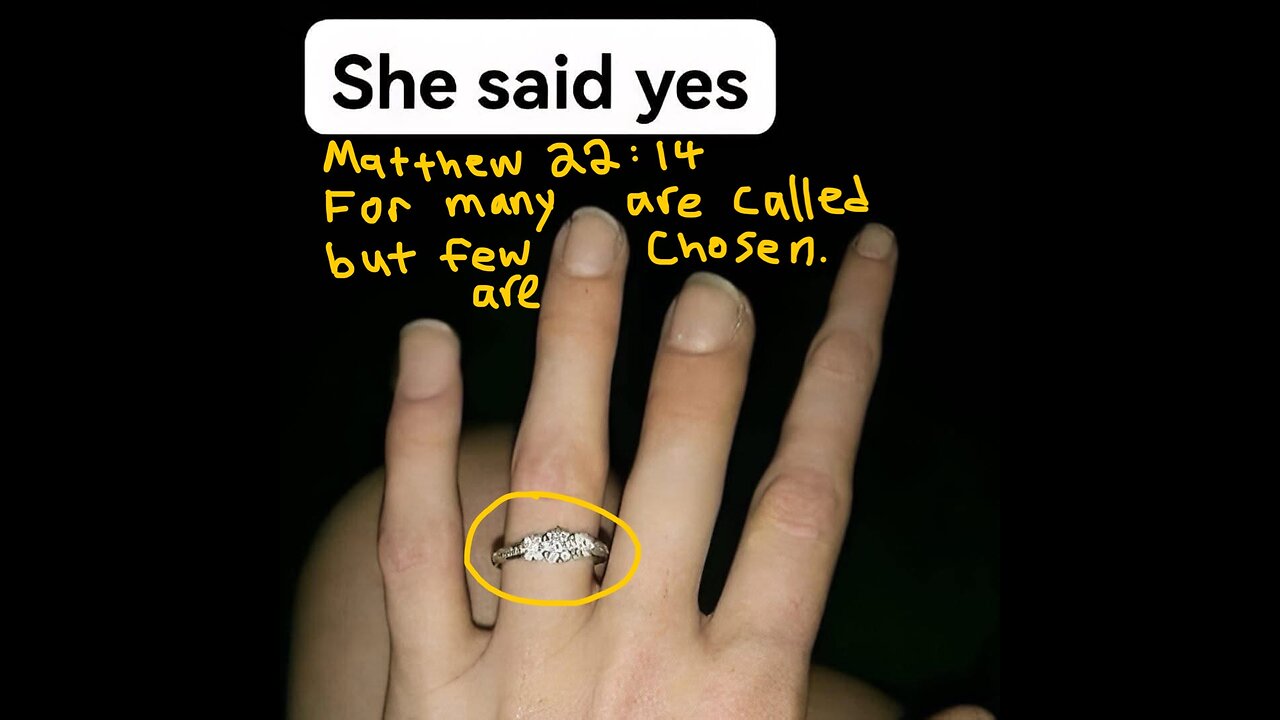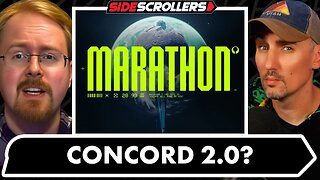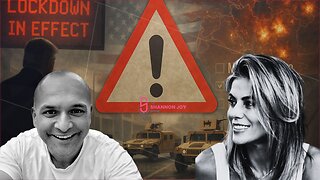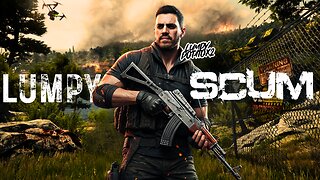Premium Only Content

(3) The Discovery of Knowledge
https://www.facebook.com/groups/974332723871967/permalink/1045165073455398/?mibextid=rS40aB7S9Ucbxw6v
Chapter 3: The Discovery of Knowledge
How can I discover knowledge? I can discover knowledge through assumptions, observations, explanations, and implications.
Assumptions are like air that fills our environment but often completely escapes our notice and attention. Assumptions are like the mortar we use to fill in the gaps between the bricks of our evidence. Assumptions are like the stowaways that are initially allowed to stay aboard a ship, but are thrown overboard when they become a problem.
Assumptions are pieces of information that are taken for granted not based on evidence, but rather based on either ignorance or trust. For many of our assumptions we are not even conscious of the fact that we are making those assumptions; we are unaware that there could be an alternative to those assumptions. We choose these assumptions based on ignorance. For some of our assumptions we are conscious of the fact that we are making those assumptions; we are aware that there could be alternatives to those assumptions. We choose these assumptions based on trust.
We all choose to trust assumptions out of necessity. The assumptions that we choose to trust form part of the foundational knowledge from which we can learn more knowledge. We trust that our senses provide us information about an external reality that is actually shared with other real people. Our information is true and accurate if it is consistent with that external reality. Our information is false and inaccurate if it is inconsistent with that external reality.
What are some of the assumptions you make in a typical day from the moment you rise to the moment you go to sleep? Which of these assumptions are you usually unaware of? Which assumptions do you normally notice every day, but trust to be true?
https://www.smashwords.com/extreader/read/801094/9/the-war-against-truth
Observations are like a bridge that allows us to cross into the external reality. Observations are like puzzle pieces that only form an image when connected. Observations are like a source of nourishment for our sanity. Observations are like a fire that can either illuminate or incinerate our imaginations.
Observations are an interpretation of sensory information. All information can be interpreted in many different ways depending on what assumptions are used to interpret the information. We generate a list of possible interpretations using the assumptions we are unaware of. We then use our trusted assumptions to narrow down the list possible interpretations to one best interpretation.
The sensory information we obtain from our senses is useless to us unless we can interpret what the information means. Our visual sensory information of brightness and colors is meaningless by itself. It is only when we use our trusted assumptions to interpret the brightness and colors that we glean knowledge of meaningful picture. Our auditory sensory information of loudness and pitch is meaningless by itself. It is only when we use our trusted assumptions to interpret the loudness and pitch that we glean knowledge of a meaningful sound. All of our sensory information is meaningless to us until we use our trusted assumptions to interpret it into knowledge of a meaningful experience.
What are some of the observations you make in a typical day from the moment your rise to the moment you to sleep? What is some of the sensory information you obtain from your senses in a typical day? What are some of the assumptions you use to interpret that sensory information?
Explanations are like the journey upstream along a river from its delta to its source. Explanations are like the tree branches above an apple on the ground. Explanations are like the tracking of a few members back to a secret headquarters to find all the members. Explanations are like the unpaved paths between knowledge.
Explanations are a process of using our assumptions to infer more knowledge by generalizing patterns in our prior knowledge. We first use many of the assumptions we are unaware of to generate a set of possible explanations for the patterns in our prior knowledge. We then filter out a set of unlikely explanations using our trusted assumptions. Finally, we use our trusted assumptions to estimate the most likely explanation.
https://www.smashwords.com/extreader/read/801094/10/the-war-against-truth
We interpret sensory information through observations whereas we interpret prior knowledge through explanations. Explanations allow us to quickly generate large amounts of new knowledge by generalizing the knowledge we already have. The knowledge generated from explanations is not always trustworthy because there are always many possible explanations and the assumptions we use to find and filter them can be incorrect. However, it is better to discerningly judge and make decisions based on our best estimation rather than to make our decisions based on a blind ignorant guess. The new knowledge generated inductively through explanations is essential when we need to make rapid decisions in unfamiliar circumstances.
What are some of the explanations you come up with in a typical day? What pool of prior knowledge did you use for those explanations? What pool of assumptions did you use for those explanations?
Implications are like the journey downstream along a river from its source to its delta. Implications are like the fall of many dominoes from the fall of just one. Implications are like the tracking of decedents from a single ancestor. Implications are like the paved roads between knowledge.
Implications are a process of using logic to generate new knowledge from prior knowledge. The new knowledge generated from logic is as trustworthy as the prior knowledge. If the prior knowledge is inaccurate, those inaccuracies will almost always be transferred to the new knowledge.
Implications use deductive logic from a trusted explanation to a predicted result. Logic itself is not just a path from accurate information to accurate information. Logic is also a path from inaccurate information to uncertain information that could be accurate or inaccurate. If the starting point is accurate then the destination is accurate. If the starting point is inaccurate, the destination is uncertain. If the destination is inaccurate, then the starting point is inaccurate. If the destination is accurate, then the starting point is uncertain. It is often possible to still get an accurate result from an inaccurate explanation. However, it is not possible to get an inaccurate result from an accurate explanation. The knowledge generated from deductive implications essential for making careful decisions in familiar circumstances.
https://www.smashwords.com/extreader/read/801094/11/the-war-against-truth
What are some of the implications you use to make predictions in a typical day? What explanations did you trust? What results did you predict from those explanations?
https://www.smashwords.com/extreader/read/801094/12/the-war-against-truth
-
 2:00:31
2:00:31
Steven Crowder
4 hours ago🔴Tucker Carlson Blasts Ted Cruz on Iran: What This Exchange Really Means
241K205 -
 LIVE
LIVE
LFA TV
15 hours agoLFA TV ALL DAY STREAM - WEDNESDAY 6/18/25
4,988 watching -
 1:11:19
1:11:19
The Rubin Report
2 hours ago‘The View’s Sunny Hostin Gets Visibly Angry When Arnold Schwarzenegger Puts Her in Her Place
28.6K26 -
 LIVE
LIVE
Rebel News
21 minutes agoCarney says US deal is close, CUPE rallies for Iran, Liberal MP calls out his party | Rebel Roundup
796 watching -
 LIVE
LIVE
Side Scrollers Podcast
1 hour agoMarathon Delayed INDEFINITELY, Switch 2’s STOLEN, RIP Anne Burrell | Side Scrollers Live
603 watching -
 25:42
25:42
IsaacButterfield
8 hours ago $0.17 earnedAmerica Is Broken
1.05K8 -
 LIVE
LIVE
The Shannon Joy Show
2 hours ago🔥🔥False Flag Incoming? Concerns About Another Military Lockdown Under Trump Are Amplified As War Rhetoric Heats Up. With Special Guest Doc Malik🔥🔥
976 watching -
 LIVE
LIVE
LumpyPotatoX2
1 hour agoSCUM v1.0 | Roleplaying Gameplay - #RumbleGaming
324 watching -
 LIVE
LIVE
GloryJean
3 hours agoMnK #1 Aggressive Gameplay 🖱️ 6.7 K/D
425 watching -
 LIVE
LIVE
Neil McCoy-Ward
1 hour agoBritain to Suffer BLACKOUTS By December!! (Unless Th...
91 watching